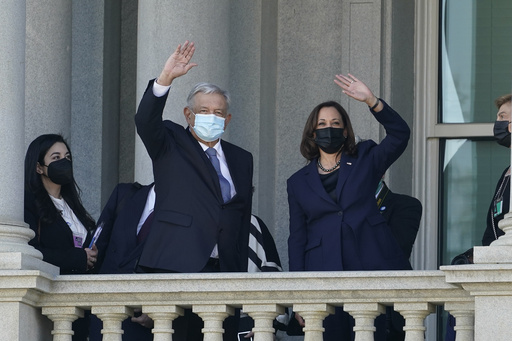President Joe Biden faced a significant challenge early in his administration as tens of thousands of Central American migrants reached the U.S.-Mexico border. To address this issue, Vice President Kamala Harris was tasked with working on the root causes of migration, focusing on boosting private investment in El Salvador, Honduras, and Guatemala to create jobs and dissuade people from making the dangerous journey to the United States.
While Harris’ approach aimed for long-term solutions, Republicans criticized her for not directly addressing the immediate surge in migration from other nations, which created a border emergency that they exploited for political gain.
Despite being labeled as the “border czar” by some, Harris was primarily focused on tackling the root causes of migration and encouraging leaders in the Northern Triangle countries and Mexico to enforce immigration laws.
There has been mixed feedback on Harris’ strategy, with supporters highlighting her efforts to attract investments that could potentially reduce future migration, while critics argue she could have done more to address the immediate crisis.
The Trump administration’s approach to immigration, including stringent asylum restrictions and promises of mass deportations, is contrasted with Biden’s reversal of many immigration policies upon taking office, even as apprehensions at the border began to rise.
Harris faced challenges early on in her role, with pressure to develop long-term policies in a complex political landscape in Central America, marked by issues such as corruption and human rights abuses.
Her strategy focused extensively on bringing private investment to the region, with companies pledging over $5.2 billion in investments. Critics, however, argue that these investments would have likely been made regardless of Harris’ involvement.
Aside from economic initiatives, Harris also worked on addressing corruption in the region, meeting with exiled Guatemalan prosecutors and judges to discuss the issue.
While Harris and the administration claim credit for the reduction in migration from the Northern Triangle countries since early 2021, independent analysts are skeptical of attributing this drop solely to Harris’ efforts, citing other regional factors at play.
Overall, while Harris’ approach to immigration and border issues continues to face scrutiny and debate, the impact of her strategies on long-term migration patterns remains uncertain.
—
Riccardi reported from Denver. Sonia Pérez D. in Guatemala City contributed to this story.


